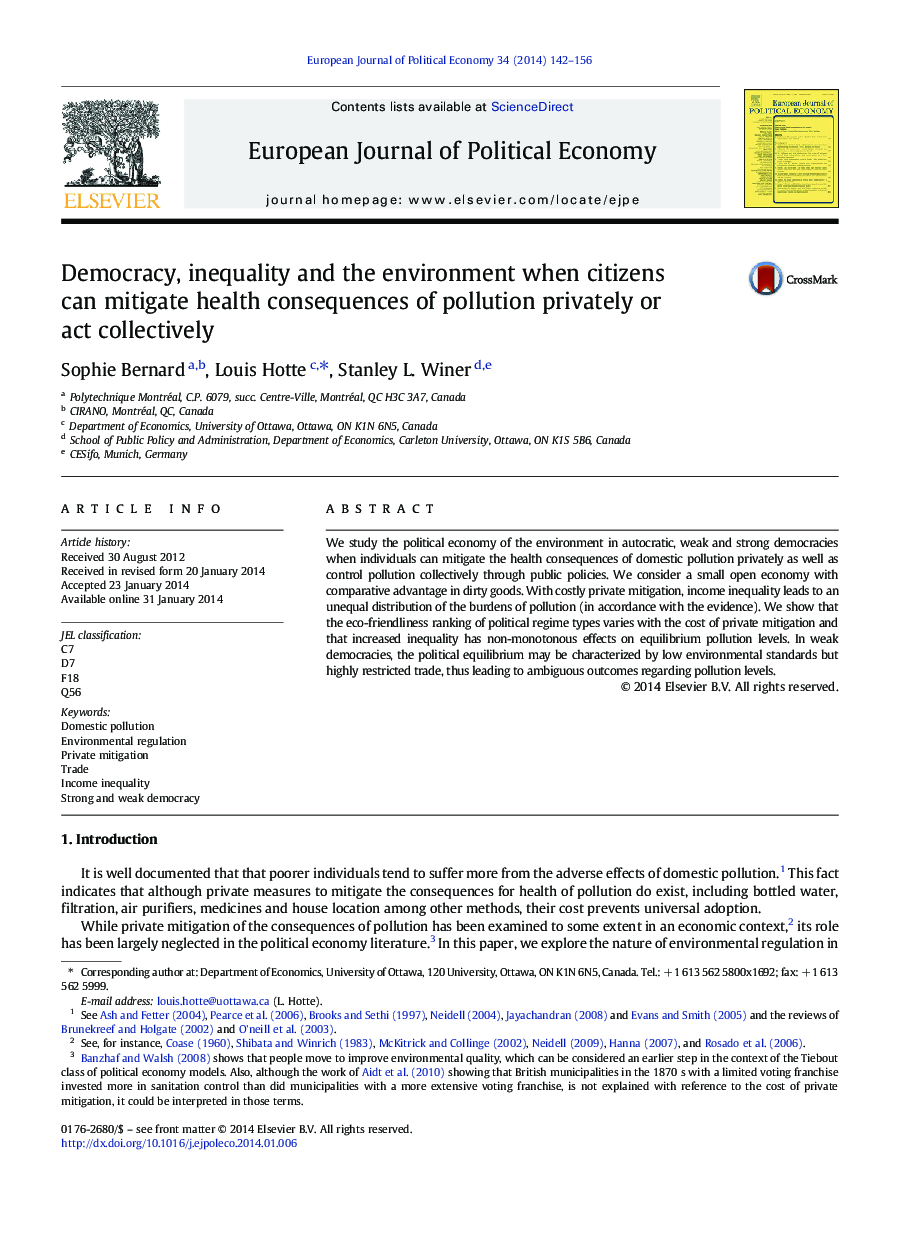| Article ID | Journal | Published Year | Pages | File Type |
|---|---|---|---|---|
| 5068096 | European Journal of Political Economy | 2014 | 15 Pages |
â¢We consider private mitigation in a model of trade and environmental policy.â¢Private mitigation possibilities lead to unequal sharing of domestic pollution burden.â¢Increased income inequality has non-monotonous effects on pollution.â¢Eco-friendliness of political regime types varies with the cost of private mitigation.â¢In weak democracies, lax regulation may be combined with restricted trade.
We study the political economy of the environment in autocratic, weak and strong democracies when individuals can mitigate the health consequences of domestic pollution privately as well as control pollution collectively through public policies. We consider a small open economy with comparative advantage in dirty goods. With costly private mitigation, income inequality leads to an unequal distribution of the burdens of pollution (in accordance with the evidence). We show that the eco-friendliness ranking of political regime types varies with the cost of private mitigation and that increased inequality has non-monotonous effects on equilibrium pollution levels. In weak democracies, the political equilibrium may be characterized by low environmental standards but highly restricted trade, thus leading to ambiguous outcomes regarding pollution levels.
